In healthcare today, medical professionals find themselves serving an increasingly diverse population. Patients come from varied backgrounds, representing a wide range of cultural identities, national origins, socioeconomic statuses, and religious beliefs. As the dynamics shift towards a more multicultural backdrop, healthcare professionals need to rise to the challenge of understanding and addressing these unique patient needs. The key to this lies in practicing cultural humility and emphasizing relationship-based care.

Understanding Cultural Humility
Traditionally, cultural competence has been a go-to phrase when discussing a health care professional’s ability to serve diverse patient populations. Cultural competence underscores the importance of acquiring cultural knowledge, nurturing cultural awareness, and understanding cultural differences. However, there’s a critical distinction between cultural competence and cultural humility. While the former places emphasis on knowledge acquisition, the latter, cultural humility, is an ongoing process. It emphasizes self-reflection, self-critique, and a commitment to engage in understanding another’s culture, an endeavor that requires a lifelong commitment.
Developing cultural humility isn’t merely about recognizing cultural stereotypes or understanding a person’s culture from a textbook standpoint. Instead, it necessitates an active process of self-evaluation and self-awareness. Through self-reflection, healthcare professionals can acknowledge their own cultural biases and learn to avoid imposing their personal beliefs onto patients. This process bridges the gap between the ‘school culture’ medical professionals are trained in and the everyday life of patients from various backgrounds.
Relationship-Based Care and Its Merits
Relationship-Based Care goes hand in hand with cultural humility. This approach is centered around the idea of treating patients as human beings rather than just medical cases. By valuing the cultural context of each patient and respecting their unique backgrounds—whether determined by sexual orientation, ethnic diversity, geographic location, or socioeconomic status—healthcare providers build trust, a crucial element in patient care.
A defining feature of Relationship-Based Care is the emphasis on developing partnerships with patients. This involves recognizing power dynamics in the healthcare space and addressing any power imbalances that may exist. By doing so, healthcare providers can cultivate cultural humility and provide care that is in tune with the patient’s needs, values, and cultural context.
Cultural Humility vs Cultural Competence: What’s the difference?
Cultural humility and cultural competence are both vital concepts in healthcare, education, and various other fields. They deal with understanding, interacting with, and respecting diverse cultural backgrounds. Despite the two terms often being used interchangeably, they have distinct meanings and implications. Here’s a detailed examination of the differences between cultural humility and cultural competence:
Cultural Competence:
Cultural Competence Definition:
Cultural competence refers to the ability of individuals and systems to function effectively within the cultural context of beliefs, behaviors, and needs presented by consumers and their communities. It’s about gaining specific knowledge and skills that allow for effective and respectful interactions with people of different cultures.
Knowledge-Based:
Cultural competence often revolves around acquiring knowledge about different cultural groups. This can include the social group culture and understanding traditions, values, customs, behaviors, and worldviews.
End Point:
Cultural competence is sometimes viewed as an end goal or a checklist. Once an individual or organization has acquired the necessary knowledge or skills, they are often considered “competent.” Meaning the individual or organization now has cultural competency.
Risk:
A potential pitfall of the cultural competence model is that it can inadvertently lead to stereotyping. By focusing on specific knowledge about a group, cultural incompetence can occur. Cultural incompetence may not account for individual variability within a specific group.
Cultural Humility:
Cultural Humility Definition:
Cultural humility is the ability to maintain an interpersonal stance that’s other-oriented, or open to the other, in relation to aspects of cultural identity that are most important to the other person’s culture. It emphasizes a lifelong commitment to self-evaluation, self-critique, and a desire to learn from others.
Process-Oriented:
Cultural humility is ongoing. It’s about recognizing and challenging power imbalances in the workplace culture and patient-provider dynamic, for instance, and continually reassessing and reflecting upon these dynamics.
Self-Reflective:
Central to cultural humility is the concept of self-reflection. Professionals should consistently evaluate their own biases, power imbalances, and privileges, understanding that they don’t have all the answers and always have more to learn.
Flexibility and Openness:
Rather than having a fixed endpoint, cultural humility is about ongoing growth, openness, and adaptability. Cultural humility emphasizes the dynamics of culture and cultural identities. It recognizes that each individual’s experience within their culture is unique.
Active Engagement:
Practicing cultural humility often requires active efforts, like seeking feedback, being open to correction, and committing to continuous learning about other cultures and self.
Cultural Competence and Cultural Humility Are Not Mutually Exclusive
While different in their approaches, cultural competence and cultural humility aren’t mutually exclusive. In fact, they can be complementary. A foundational level of cultural knowledge (competence) can help professionals avoid basic misunderstandings or offenses, while an attitude of cultural humility ensures that this knowledge doesn’t lead to over-generalizations or assumptions.
While cultural competence focuses on acquiring specific knowledge about various cultures, cultural humility emphasizes an ongoing, lifelong process of self-reflection, recognizing power imbalances, and cultivating a genuine openness to learning from every interaction. Both concepts play crucial roles in ensuring effective, respectful, and meaningful interactions in diverse settings.
How can Cultural Humility and Relationship-Based Care Complement Each Other in Health Care?
Cultural humility and Relationship-Based Care are both foundational approaches that can significantly enhance the quality of healthcare delivery. While they arise from different principles, when integrated, they offer a comprehensive approach to patient-centered care. Here’s a detailed explanation of how cultural humility and Relationship-Based Care can complement each other in healthcare:
1. Foundations of Each Concept:
Cultural Humility: At its core, cultural humility emphasizes ongoing self-reflection, understanding one’s own unconscious biases, and the continual cultivation of respectful partnerships. It acknowledges the challenges in fully understanding another’s experiences and encourages practitioners to be open, humble, and willing to learn from patients themselves.
Relationship-Based Care (RBC): This approach centers around the belief that therapeutic relationships (relationships that foster healing) are the heart of healthcare. RBC prioritizes relationships between caregivers and patients, among team and family members, and between caregivers and the community.
2. Mutual Focus on Respect and Trust:
Both approaches value the importance of building trust. In cultural humility, trust is cultivated when healthcare providers acknowledge their limitations and show a genuine desire to learn from the patient. In RBC, trust is an outcome of consistent, caring, and authentic interactions.
3. Empowerment of the Patient:
Cultural humility encourages providers to see patients as experts in their own lives and cultural experiences, thus empowering them to take an active role in their care.
Relationship-Based Care also promotes patient autonomy and empowerment, recognizing the importance of the patient’s voice in care decisions.
4. Enhanced Communication:
Cultural humility prompts providers to ask questions, listen actively, and avoid making assumptions. This open dialogue ensures that care is tailored to the patient’s unique cultural context.
The Relationship-Based Care similarly values open, honest, and frequent communication as the cornerstone of effective care. Healthcare providers are also taught four therapeutic practices to help providers more consistently create therapeutic connections and see each patient as a person with his or her own unique story and response to the need for care.
5. Emphasis on Continuous Learning and Growth:
Cultural humility views cultural competence as a lifelong learning journey. It emphasizes the need for constant learning, self-reflection, and self-critique.
Relationship-Based Care on the other hand, promotes continuous professional development, inter-professional collaboration, and team growth, ensuring that the care team evolves and adapts to best serve patients.
6. Addressing Power Dynamics:
Cultural humility seeks to address and rectify power imbalances between providers and patients, ensuring that the patient feels valued, heard, and understood.
Relationship-Based Care also addresses power dynamics, especially in team settings, promoting a collaborative approach where every team member, regardless of role, has a voice.
7. Community Engagement:
Cultural humility recognizes the importance of community in an individual’s health and well-being and encourages providers to engage and collaborate with community resources.
Relationship-Based Care expands this further, advocating for strong community ties and outreach with health care professionals, ensuring that the care provided aligns with community needs and values.
Cultural humility and Relationship-Based Care, when combined, offer a holistic approach to healthcare that prioritizes the individuality of each patient while promoting the importance of therapeutic relationships. This synergy ensures that care is not only clinically sound but is also delivered in a manner that is more culturally competent, sensitive, respectful, and built upon mutual trust and understanding. In a diverse world, integrating these principles into healthcare can lead to better patient outcomes, higher satisfaction rates among patients and providers, and a more inclusive and compassionate healthcare environment.
Challenges and Opportunities
Despite its importance, practicing cultural humility and Relationship-Based Care in hospital settings isn’t without its challenges. With the increasing diversity in patient populations, understanding and navigating different cultures become more complex.
Furthermore, the healthcare environment is not isolated from societal influences. Vulnerable populations, such as those determined by socioeconomic status or national origin, often face health disparities. Addressing these disparities requires an understanding of cultural values, socio economic status, and the social environment.
The Role of Education
Multicultural education is paramount in fostering cultural humility among healthcare professionals. Such education should not only focus on imparting cultural knowledge but also emphasize the importance of self-reflection and self-critique. Defining physician training outcomes to include modules on cultural humility is a step in the right direction. This form of education should also challenge cultural stereotypes, promote self-awareness, and emphasize the dynamic nature of cultures.
Clinical research and nursing research can play pivotal roles in shaping this educational paradigm shift. By focusing on meaningful and ethical projects that explore the patient-care provider dynamic, every clinical researcher can provide insights into best practices and areas of improvement.
Implement Meaningful Change with Creative Health Care Management “CHCM”
At Creative Health Care Management we build and develop partnerships with health care organizations that want to implement Relationship-Based Care and further develop cultural humility within their teams. Our solutions like See Me as a Person, Shared Governance, and Relationship-Based Care all help organizations create stronger relationships and stronger outcomes.
In conclusion, patients are increasingly diverse, the healthcare system and its professionals must adapt. To develop cultural humility and Relationship-Based Care initiatives, healthcare providers can ensure they serve their patients in the most comprehensive and respectful manner possible. This approach not only promotes better patient outcomes but also paves the way for a healthcare system rooted in understanding, respect, and mutual trust.
Sources:
https://www.ncbi.nlm.nih.gov/pmc/articles/PMC3834043/
https://www.ncbi.nlm.nih.gov/pmc/articles/PMC7011228/
https://www.cdc.gov/globalhealth/equity/guide/cultural-humility.html
https://hogg.utexas.edu/3-things-to-know-cultural-humility
https://study.com/learn/lesson/what-is-cultural-humility.html
https://inclusion.uoregon.edu/what-cultural-humility-basics
https://www.ncbi.nlm.nih.gov/pmc/articles/PMC6713111/
https://chcm.com/solutions/relationship-based-care/
https://voice.ons.org/news-and-views/cultural-humility-is-a-nursing-clinical-competency
https://healthcare.rti.org/insights/health-equity-cultural-humility-improves-health-outcomes





